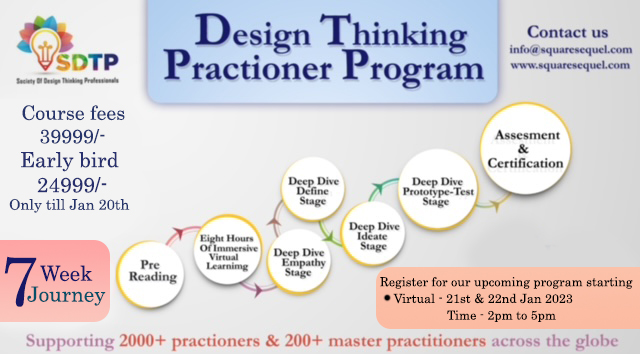Jahnvi is traversing to develop the skills to communicate in an effective and meaningful way. She is pulling out all the stops to be an efficacious leader to her team. So far, she has gathered the understanding of the requisites of becoming a first-time manager, her values, locus of control, setting goals, and achieving them, her learnings from The Strangest Secret, how to handle the missed goals, an overview of feedback, the gateway to discovering the blind spot, frameworks of feedback, the concepts of feedforward, and the overview of the interpersonal skills.
Jahnvi came to know that strong interpersonal skills make a positive difference in various aspects of life. According to one study published in the Eurasian Journal of Educational Research, individuals who got communication skills training showed a considerable rise in empathetic tendencies and the ability to articulate their feelings. Furthermore, excellent interpersonal skills are frequently associated with exceptional teamwork and leadership.
It piqued Jahnvi’s interest in understanding the way interpersonal skills can elevate her success and give her a boost to build a strong team in the long run.
Techniques To Enhance Interpersonal Skills

Interpersonal skills are essential to successful communication, and they can be honed with practice. Studies have shown that using strong language, powerful words, and engaging in meaningful conversations can have a positive impact on your relationships. Here are some tips to help you navigate conversations to strengthen your interpersonal skills:
Articulating Your Thoughts and Ideas

Words have the power to influence people, so it is important to remember that different words may evoke different emotions. When conversing, be conscious of the words you are using. Choose words that are to the point and that accurately express what it is that you want to say.
Being able to effectively articulate your points can help you stand out from the rest and make an impression. When it comes to communicating, the choice of words you use is important. Not only should your words be precise, but they should also be chosen carefully to get the desired impact.
Setting the Right Tone in Conversations

The tone of a conversation can make or break it. It can create a positive atmosphere or an uncomfortable one. Establishing the right tone in a conversation is essential for successful communication. Here are a few tips to help you set the right tone in conversations:
- Be aware of your body language: Your body language can often be more telling than your words. Be conscious of how you sit and stand, and make sure to maintain a relaxed, open posture.
- Listen actively: Listening is key to effective communication. Show your interest in the conversation by nodding, making eye contact, and asking relevant questions.
- Be mindful of your tone: Speak in a calm, respectful tone. Avoid speaking in a rushed or aggressive manner, which can make the other person feel disrespected.
- Be empathetic: Show understanding and empathy by acknowledging the other person’s feelings and point of view. This will help create an open, trusting atmosphere.
- Be honest: Honesty is essential for building trust and creating a positive conversation. Speak truthfully and be open about your opinions.
Being Present in the Conversations

When it comes to developing your interpersonal skills, presence is key. Being able to show up in conversations with others and truly be present is a fundamental part of having meaningful conversations. Presence is all about listening to the other person, actively engaging with them, and responding to their thoughts and ideas. While it might seem simple, it can be difficult to be truly present in conversations.
Make sure you’re listening to what they’re saying, rather than just waiting to respond. Showing genuine interest in what the other person is saying is key to being present in conversations. It’s also important to be aware of your body language. Make sure to maintain eye contact, nod, and give verbal cues that you’re actively listening. This can help build trust and create an atmosphere of openness.
It’s important to remember that presence is all about being in the moment. That means being mindful of your own thoughts and feelings, as well as those of the other person. Paying attention to both can help you stay present and engaged in the conversation. Practicing presence can help you become a better listener and communicator. It can also help you build stronger connections with others by showing that you’re interested in what they have to say.
Influencing Others

Influencing others is the fundamental skill for effective communication. Having the ability to influence others can help you build successful relationships and get the results you want.
- Be prepared: Research and plan ahead to ensure you are fully prepared for the conversation. Know your facts and be able to back up your points with evidence.
- Be flexible: Influencing others require flexibility in order to reach a successful outcome. Be willing to compromise, and be open to new ideas.
- Be assertive: Make sure your point of view is heard, and be confident in your argument. Don’t be afraid to stand up for yourself, but don’t be overly aggressive either.
- Be persuasive: Use persuasive language to get your point across. Speak clearly, and be sure to articulate your ideas in a persuasive way.
- Be patient: It often requires patience. Don’t rush the process, and take the time to listen to the other person’s perspective.
Developing Active Listening Skills

Listening is an essential part of effective communication and interpersonal skills. Being a good listener can help you to be more successful in your relationships, both professionally and personally.
- Focus on the speaker: Put away any distractions and give your full attention to the person who is speaking.
- Look for the main points and keywords: Try to identify the main points of the conversation and pay attention to the keywords being said.
- Be patient: Allow the speaker to finish their thoughts and ideas before responding.
- Avoid interrupting. Interrupting the speaker can be seen as rude and can derail the conversation.
- Ask clarifying questions: Asking questions can help you to better understand what the speaker is saying and demonstrate that you are listening.
- Summarize the conversation: Summarizing what the speaker has said can show them that you have heard and understood them.
- Be non-judgmental: It is important to listen without judgment or criticism to ensure that the speaker feels comfortable and able to express themselves.
Appreciating Differences and Different Points of View

As individuals, we have different backgrounds, experiences, and perspectives. These differences can be a great source of strength in conversations. In order to foster a productive conversation, it’s important to appreciate differences and different points of view. When speaking to someone, remember to respect their opinion.
Even if you don’t agree with them, you can still find common ground and work together to come to a resolution. You can try to understand their perspective by asking questions and listening intently. You don’t have to agree with everything, however, being open to different opinions can help to foster productive conversations and create a more positive atmosphere.
Making a First Good Impression

The way you present yourself and interact with others can leave a lasting impression, so it’s important to put your best foot forward.
- Be Confident: Stand tall, make eye contact, and speak with a clear, steady voice. Showing that you’re confident will make others more likely to take you seriously.
- Be Positive: Share your enthusiasm for the topic at hand and stay away from negative comments. Focusing on the positive will show others that you’re eager to learn and work together.
- Be Prepared: Preparation is key, make sure you’re familiar with the topic and be ready to answer any questions. Being prepared shows that you take the conversation seriously and have done your research.
- Be Respectful: Listen attentively and be sure to give others a chance to speak. Showing respect for others will make them more likely to trust and respect you.
Creating Your Own Brand

One way to do this is to create a strong and positive brand and reputation for yourself. It starts with understanding yourself and being aware of how others view you. It means becoming aware of how you come across in conversations and being able to effectively communicate your ideas and opinions. It also means having confidence in yourself and your abilities. It’s important to have a positive attitude and be enthusiastic about any conversations you engage in.
Team Management

Leading a team of people requires a range of skills and knowledge. While some of these skills and knowledge are inherent, many can also be learned and developed. Here are some strategies for managing a team that you can use to cultivate successful outcomes.
- Communication: Clear and effective communication is essential for managing a team. Make sure you give clear instructions and provide feedback on a regular basis. Make sure that everyone understands the expectations and goals of the team and be open to feedback from your team members.
- Delegation: Delegating tasks to team members is a key part of effective team management. It enables you to maximize your team’s potential, as well as giving team members a sense of responsibility and ownership. Be sure to delegate tasks to the right person, depending on their skills and experience, and provide support and guidance.
- Motivation: You can do this by providing rewards for achieving goals, or by recognizing individual team members for their hard work. You should also make sure that everyone is feeling included and valued.
- Leadership: You need to be able to lead by example and set a good example for your team. Make sure that you are organized and that your team members are clear on the expectations and challenges.
- Teamwork: Encourage collaboration and ensure that everyone is working towards the same goals. Make sure that there are opportunities for team members to exchange ideas and offer solutions. By following these strategies for managing a team, you can create a positive and productive team environment that will help you achieve your goals.
These techniques made Jahnvi comprehend that interpersonal skills are an invaluable asset in any workplace. She found that the ability to connect with others, build relationships, and handle conflict can give her the pass to the realms of successful leadership. She finally got the keys to unlock the potential of human connection. A positive outlook can help her stay focused on the strengths of her people and their abilities and she can foster a meaningful relationship with her team. In the next article, she will dive deep into the strategies to manage a team efficaciously.
https://www.mindtools.com/anmomb0/boost-your-interpersonal-skills
https://virtualspeech.com/blog/how-to-improve-interpersonal-skills
https://bigthink.com/wp-content/uploads/2019/07/top-8-interpersonal-skills-for-the-workplace.jpg
https://www-assets.perkbox.com/media/5199/i960/97c28a3e5443589b71ed.jpg
https://www.yourthoughtpartner.com/hubfs/Blog_images/Face-to-face-communication.png
https://melodywilding.com/wp-content/uploads/2018/12/rawpixel-788595-unsplash.jpg
https://media.bizj.us/view/img/9193592/howtopresentation*1200xx2714-1531-0-21.jpg
https://www.sefe-mt.com/wp-content/uploads/2022/08/iStock-1313807718.jpg
https://images.businessnewsdaily.com/app/uploads/2022/04/04074130/teamwork_g-stockstudio_getty.jpg
Written By: Jimmy Jain
Edited By: Afreen Fatima
Society of Design Thinking Professionals









